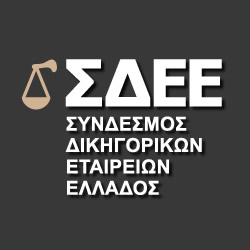«Funding of the Hague Child Abduction Convention cases, Greece» by Haroula Constandinidou, International Family Law Journal, 2017, Issue 1
The services provided by and through the central authority of each state in relation to applications submitted under the Hague Child Abduction Convention are free of charge (Article 26, Hague Child Abduction Convention). However, a contracting state may make a reservation under Article 42 regarding any costs incurred for legal counsel or advisers or for court proceedings, except insofar as those costs can be covered by its system of legal aid and advice. When Greece ratified the Hague Child Abduction Convention it made the above reservation as regards the costs (Article 1, Law 2102/1992 pertaining to ratification of the International Convention on the Civil Aspects of International Child Abduction). However, until mid-2013, all the requests regarding children under 16 years of age who had been wrongfully removed to Greece, were delivered by the Ministry of Justice, Transparency and Human Rights and were forwarded immediately to the Central Office of the State Legal Council which appointed one of the State lawyers to represent the requesting parent, free of charge, before the Greek courts. Since mid-2013, there is no such possibility. Each parent can only make use of legal aid, which is available in Greece under Law 3226/2004, provided the following prerequisites are met: According to the above law, legal aid is granted to all citizens of the European Union as well as to citizens of third countries who: 1)Have a legal permanent or habitual domicile in the European Union (only for citizens of third countries). 2) Have an annual family income which does not exceed two thirds of the lowest annual personal income provided by the National General Collective Working Agreement. The application must be supported by several certificates from state authorities evidencing the financial situation of the applicant and has to be submitted at least fifteen days before the trial for the award of legal aid. If successful, the applicant is granted legal aid covering all levels of jurisdiction including enforcement of any resulting order.






